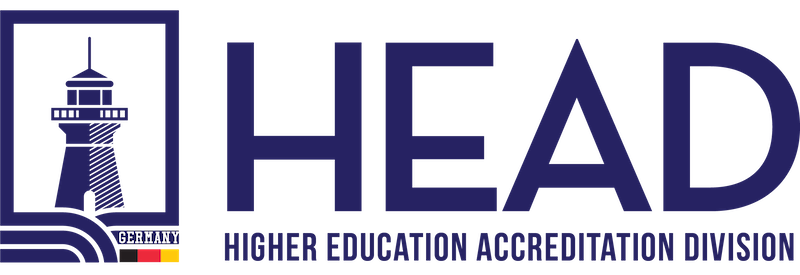Building a Sustainable Learning Environment: How Universities and Higher Education Providers Embrace Educational Management Systems

Introduction:
In an ever-changing world, universities and higher education providers play a pivotal role in shaping the leaders and professionals of tomorrow. As the urgency to address environmental challenges grows, these institutions have a unique opportunity to lead by example and foster sustainability through the implementation of Educational Management Systems (EOMS). In this article, we explore how universities and higher education providers can demonstrate their commitment to fulfilling the requirements of an EOMS and create a sustainable learning environment.
Documentation: Establishing the Foundation
The first step towards fulfilling EOMS requirements is the development of comprehensive documentation. Universities and higher education providers need to create policies, procedures, guidelines, and manuals that outline their commitment to educational management and sustainability. These documents serve as a roadmap, clearly defining the processes, responsibilities, and interactions necessary for an effective EOMS implementation.
Stakeholder Engagement: Collaboration for Success
Engaging stakeholders is key to the success of an EOMS. Universities and higher education providers should actively involve students, faculty, staff, and external partners in the process. Feedback mechanisms, surveys, committees, and regular communication channels can facilitate meaningful engagement, ensuring that the EOMS reflects the needs and aspirations of the entire learning community.
Curriculum Development: Integrating Sustainability into Education
To demonstrate commitment to the EOMS, universities must align curriculum development processes with sustainability objectives. By integrating sustainability principles, ethical considerations, and relevant educational standards, institutions can foster environmental consciousness among students. This can involve offering courses dedicated to sustainability, infusing sustainability concepts across various disciplines, and encouraging research on environmental topics.
Quality Assurance: Ensuring Effectiveness and Improvement
Implementing quality assurance mechanisms is crucial for the successful implementation of an EOMS. Regular evaluations, audits, and reviews help assess compliance with established processes, identify areas for improvement, and address any shortcomings. By actively monitoring and reviewing educational processes, universities can continually enhance their offerings and ensure they align with the goals of the EOMS.
Resource Management: Sustainability in Action
Universities and higher education providers must showcase their commitment to resource management by implementing sustainable practices. This includes initiatives to conserve energy, reduce waste, optimize water usage, and promote responsible procurement of goods and services. By setting an example through sustainable campus operations, institutions reinforce their dedication to environmental stewardship.
Staff Training and Professional Development: Empowering Change Agents
Providing ongoing training and professional development opportunities to faculty and staff is vital for the successful implementation of an EOMS. Workshops, seminars, online courses, and certifications related to educational management and sustainability can enhance their understanding and competency. Empowering educators with the necessary knowledge and skills ensures the integration of sustainability principles into teaching practices and administrative processes.
Performance Measurement and Reporting: Tracking Progress and Transparency
To demonstrate the effectiveness of the EOMS, universities and higher education providers must establish mechanisms for performance measurement and reporting. Regularly tracking and reporting on environmental and educational performance indicators allows institutions to monitor progress, highlight achievements, and identify areas needing improvement. Transparent reporting builds trust and accountability with stakeholders and the wider community.
External Recognition and Certifications: Independent Validation
Seeking external recognition and certifications from relevant educational and sustainability accreditation bodies provides independent validation of an institution’s commitment to fulfilling EOMS requirements. Certifications such as ISO 14001 (Environmental Management System) or ISO 9001 (Quality Management System) demonstrate a dedication to excellence and continual improvement. Such recognition enhances an institution’s reputation and inspires confidence among students, staff, and partners.
Research and Innovation: Leading the Way
Universities and higher education providers should actively engage in research and innovation related to educational management and sustainability. By conducting research, publishing findings, participating in conferences, and collaborating with other institutions, universities and higher education providers can contribute to knowledge sharing and industry advancement. Research and innovation help institutions stay at the forefront of educational practices, drive sustainability initiatives, and inspire others to follow suit.
Conclusion:
As institutions entrusted with shaping the minds of future leaders, universities and higher education providers have a unique responsibility to embrace Educational Management Systems (EOMS) and create sustainable learning environments. By fulfilling the requirements of an EOMS, these institutions can demonstrate their commitment to educational excellence, environmental stewardship, and societal impact.
Through comprehensive documentation, stakeholder engagement, curriculum integration, quality assurance, resource management, staff training, performance measurement, external recognition, and research and innovation, universities and higher education providers can effectively showcase their dedication to the principles and practices of an EOMS.
In doing so, they not only equip students with the knowledge and skills needed to address global challenges but also inspire them to become responsible and environmentally conscious citizens. By embracing an EOMS, universities and higher education providers are at the forefront of creating a sustainable future and shaping a generation of leaders who will drive positive change in society.
Source: HEAD – Higher Education Accreditation Division
Would you like to speak to one of our Higher Education Accreditation Expert? Just submit your details and we’ll be in touch shortly. You can also email us if you would prefer.

